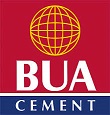FCT, ABUJA, NIGERIA – BUA Group Plc has announced a major move to generate its own electricity to power its cement manufacturing facilities.
This strategic shift is aimed at reducing operational costs and, ultimately, lowering cement prices for consumers.
Chairman of BUA Group, Abdul Samad Rabiu, revealed the plan during the company’s Annual General Meeting (AGM) held Tuesday at the Transcorp Hilton Hotel in Abuja.
“We are spending a significant portion of our earnings on electricity in a country still facing unreliable power supply”, Rabiu said, stressing how energy costs have become a primary driver of high cement prices.
To tackle this challenge, BUA Cement has secured a 70MW power supply deal with Wartsila OY of Finland for its Sokoto Line 4. Additionally, a 20MW gas-powered project has been initiated in partnership with Green Power International.
“These ventures are expected to boost the company’s energy independence and operational efficiency. We’re establishing our own energy generation system using our own gas. Gas is profitable, and we aim to optimize it”, Rabiu explained.
Further expanding its footprint, BUA Cement has commenced construction of a new greenfield cement plant in Ososo, Edo State, with a projected annual capacity of 3 million metric tonnes.
Once operational by Q1 2027, BUA’s total installed capacity will reach 20 million metric tonnes per annum, up from 17 million metric tonnes currently.
“This expansion has taken us from 11 million to 17 million metric tonnes per annum, further reinforcing our standing in Nigeria’s cement market”, Rabiu noted.
At the AGM, shareholders approved a dividend payout of ₦2.05 per ordinary share.
BUA Cement’s 2024 Annual Report, titled “Beyond Limits,” revealed a strong performance: Revenue surged 90.54% to ₦876.47 billion, driven by higher production capacity and strong market demand; Pre-tax profit rose by 48.2% to ₦99.63 billion and Profit after tax increased by 6.41%, despite increased tax burdens.
However, cash reserves declined by 62.35%, owing to major capital investments and debt repayments, while shareholder equity saw a modest growth of 0.86%.
Addressing public concerns over cement pricing, Rabiu attributed the ₦10,000 per bag cost to the devaluation of the Naira, which has significantly increased production expenses.
“We have to stay profitable. We have employees and investors to take care of, and we’ve invested billions. A ₦10,000 price tag on cement is justifiable under these circumstances,” he said.
He added that a stronger Naira in the future would help reduce production costs and ease pressure on consumers.
Commenting on the company’s performance, BUA Cement’s Managing Director/CEO, Yusuf Binji, said the results demonstrate the effectiveness of resilient and proactive strategies in a tough economic environment.
“Our 2024 results show strong operational performance and the effectiveness of our proactive strategies amidst tough market dynamics”, Binji stated.
Binji also reiterated the company’s dedication to corporate governance, transparency, and fairness across all levels of operation.
“We remain committed to conducting our business with integrity and delivering value to all stakeholders”, he affirmed.
 Startrend International Magazine For Your Latest News And Entertainment Gists
Startrend International Magazine For Your Latest News And Entertainment Gists





